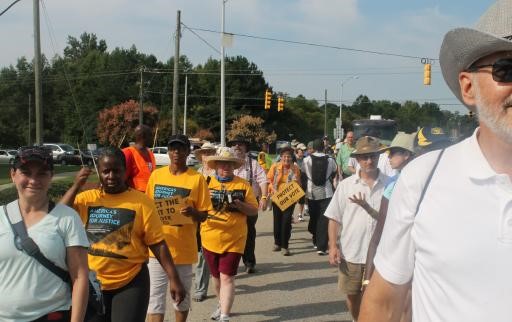
Over the past several weeks, action on the federal level has brought about new challenges and new opportunities in the ongoing struggle to ensure equal access to the ballot. As the Trump administration has sought to further advance the myth of widespread voter fraud, the Supreme Court has issued new rulings that overturn voting restrictions and other changes that disproportionately impacted minority voters.
On May 11, President Trump signed an executive order establishing a “Presidential Advisory Commission on Election Integrity.” In many ways, the commission follows from statements made by both the President and members of the administration asserting, with no factual support, that millions of votes were cast illegally during the 2016 election. In reality, comprehensive studies have only found a handful of voter fraud cases out of billions of votes cast in recent decades, with the rate of such incidents falling somewhere between 0.0003 and 0.0025 percent.
The President’s executive order not only perpetuates these baseless allegations, but it fails to recognize the most pressing threats to election integrity: restrictive laws that keep people away from the polls. These laws reduced early voting hours, created burdensome voter ID requirements and implemented complex voter registration regulations, which individually and collectively serve to disproportionately impact minority voters, young people, impoverished voters and senior citizens. While such measures impede voter participation for otherwise eligible voters, the Executive Order makes no mention of them. This casts serious doubt on whether the Commission will truly advance election integrity. As RAC Director Rabbi Jonah Dov Pesner said in response to the executive order, “Rather than unearthing non-existent lawbreaking, the work of this Commission is likely to be used as justification to further limit the right to vote for minorities, low income people, young people and the elderly.”
At the same time, the Supreme Court of the United States has taken steps that will advance voting rights for more Americans, particularly from the state of North Carolina. On May 15, the Court declined to hear a an appeal to the Fourth Circuit Court of Appeals’ ruling that the state’s far-reaching voter suppression law targeted “African-Americans with almost surgical precision.” The Supreme Court was clear to state that their refusal to take up the case was not a statement of whether or not they agreed with the Fourth Circuit. Rather, it was because of a conflict between North Carolina’s Governor, Attorney General and legislature over who has the power to defend the law. Regardless, this does mean that North Carolina’s law remains void and residents will not have to contend with the onerous restrictions it contained.
The Supreme Court also ruled on May 22 and June 5 that a number of North Carolina’s congressional and state legislative districts were drawn in a way that diminished the power of black voters in the state. This process, known as racial gerrymandering, often involves creating majority-minority districts in order to reduce the numbers of people of color in surrounding districts. A lower court will now have to decide how North Carolina must rectify this issue.
In the Talmud, Rabbi Yitzhak taught that “A ruler is not to be appointed unless the community is first consulted” (Berachot 55a). When we suppress the vote or dilute the power of minority voters, we destroy the integrity of an election system that is supposed to take the interests of the entire community into account. It is vital that we continue to push for an electoral system that values all Americans: urge Congress to pass meaningful voting rights legislation today.
Related Posts

Remarks from Rabbi Eliana Fischel at Jewish Gathering for Abortion Access

Teens from North Carolina Speak About Environmental Justice


